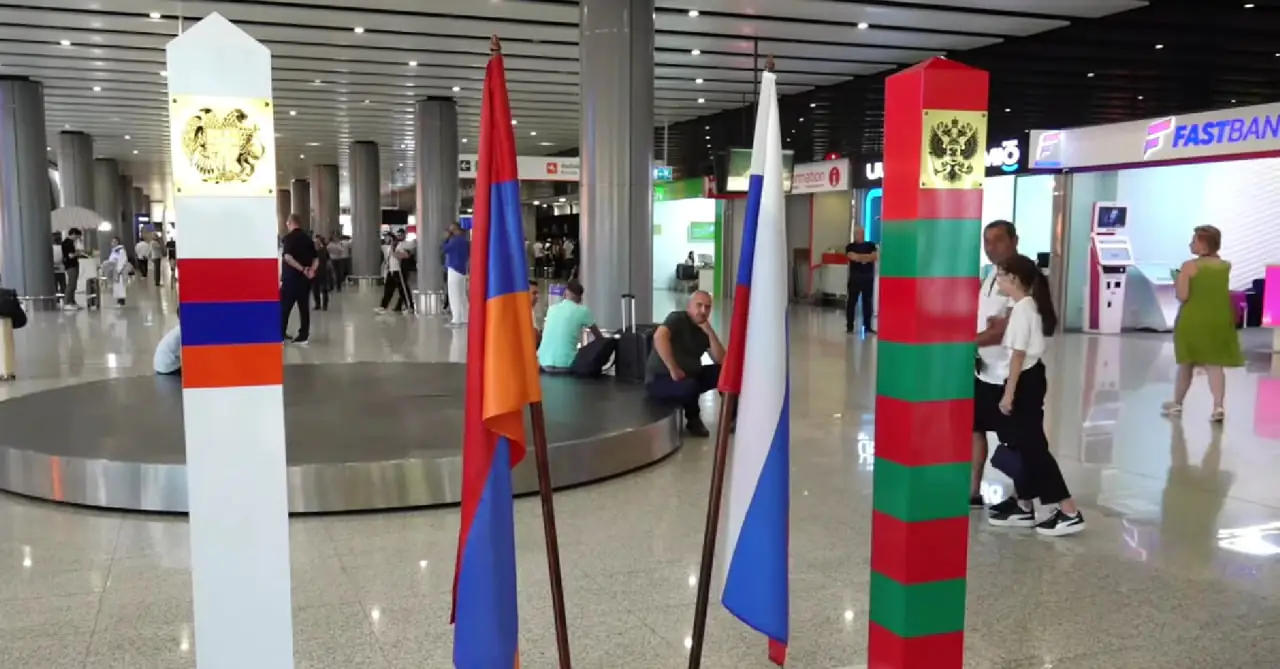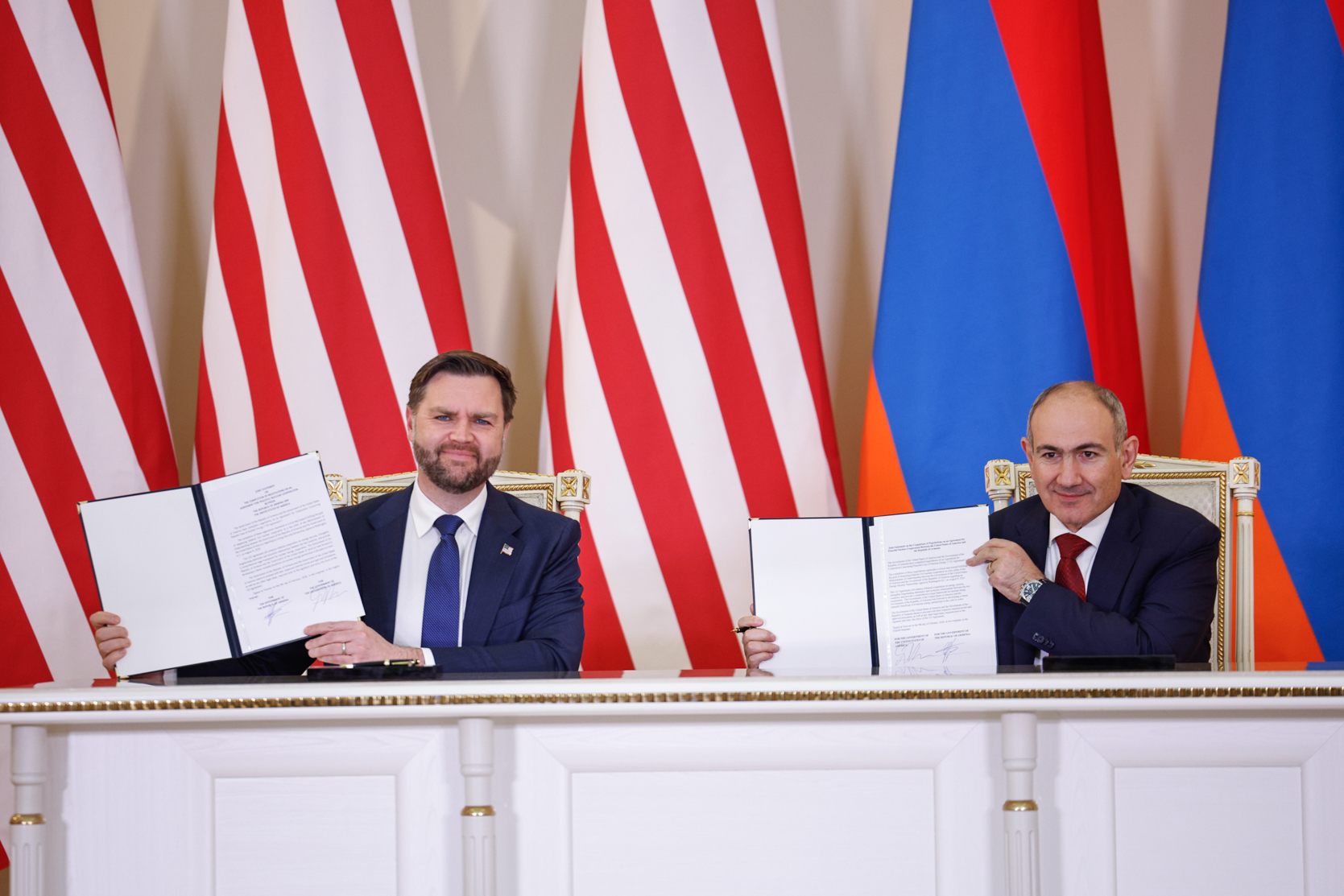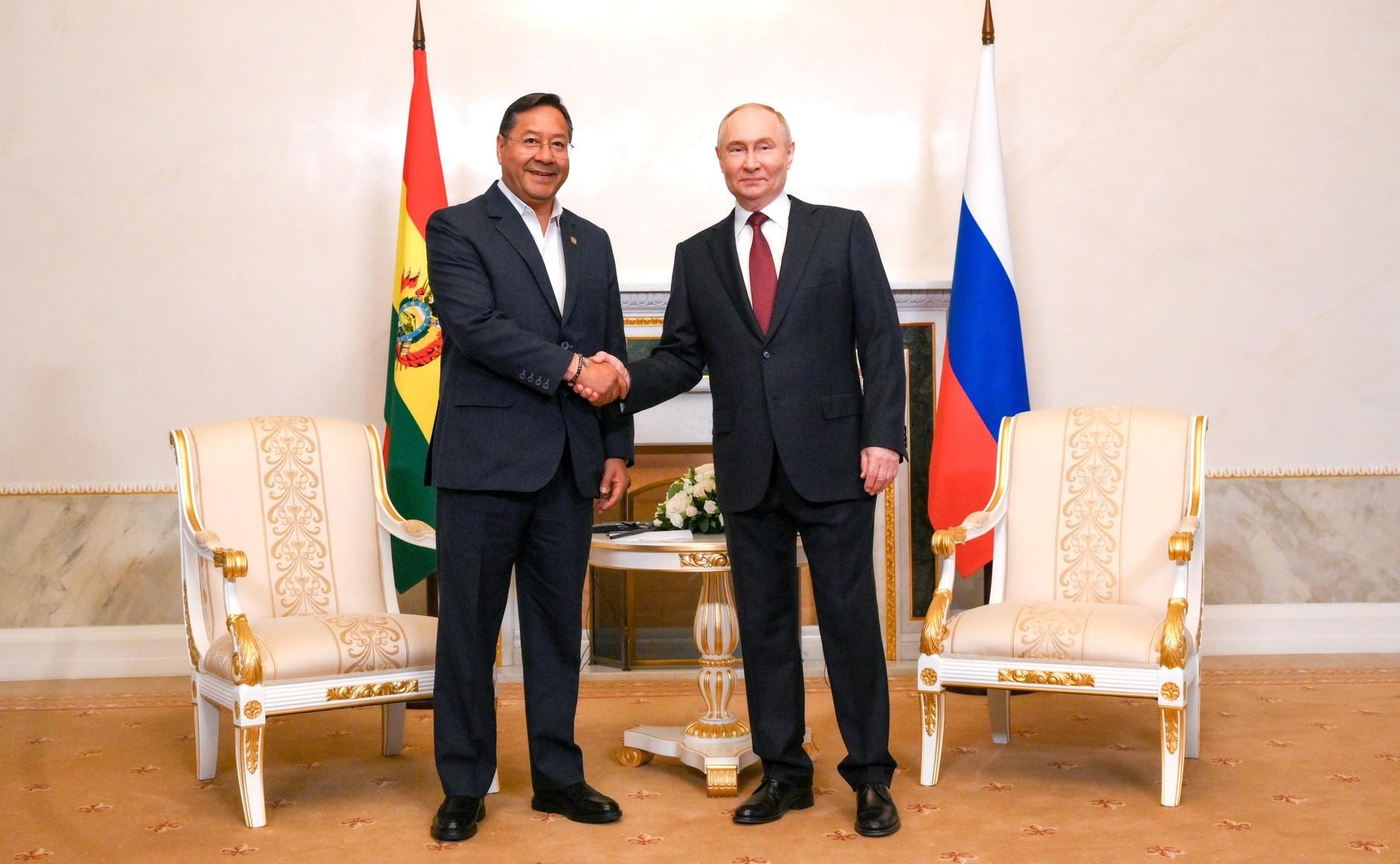
Armenia Ends Russian Oversight at Yerevan Airport as Security Concerns Persist
Armenia Ends Russian Oversight at Yerevan Airport as Security Concerns Persist
Executive Summary:
- On July 31, the Russian border guards deployed to Yerevan’s Zvartnots International Airport formally ceased operations. The following day, the airport became the sole responsibility of units from the Armenian Border Guard.
- This withdrawal only applies to the airport. Russian border guards will still patrol Armenia’s borders with Iran and Türkiye. Many in Armenian civil society demand their removal, but Russia may not want to give up its presence in Armenia.
- Yerevan’s ongoing shift away from Moscow has significant security implications, especially as the number of foreign officials visiting Armenia increases. Russia can still monitor their arrival and departure through its access to Armenia’s Border Electronic Management Information System.
On July 31, Russian Federal Security Service (FSB) border guards ended their 32-year presence at Yerevan’s Zvartnots International Airport. In March, Yerevan informed Moscow that the units were no longer necessary and that the Armenian National Security Service (NSS) would perform border control duties independently without the assistance of Russian border guards (Radio Free Europe/Radio Liberty, March 6; NSS, accessed August 1). Armenian Prime Minister Nikol Pashinyan claimed the move was not geopolitical, and both Yerevan and Moscow confirmed that it only concerned FSB border guards at Zvartnots and recent temporary deployments on the border with Azerbaijan (JAM-News, March 12; News.am, May 13). Despite warnings from Russia that Armenia was risking “irreparable damage” to their already strained relations, an agreement was reached between Pashinyan and Russian President Vladimir Putin in May to withdraw the border guards by August 1 (Azatutyun, March 12, 13; Radio Free Europe/Radio Liberty, May 9; see EDM, August 5). For Yerevan, the removal of Russian border guards from the city’s airport is a significant step away from Moscow. Issues still persist, however, with the remaining Russian border guards in Armenia, and they will likely be more difficult to remove than those formerly stationed at the airport.
Russian media reported that around 4,500 FSB border guards are stationed in Armenia, with most believed to be on the border with Iran and Türkiye (RIA Novosti, October 28, 2020). The presence of Russian border guards near Iran and Türkiye had been determined by an interstate contract in 1992 on the status of Russian border troops in Armenia, while the deployment of the Russian FSB at the airport was not (Commonwealth of Independent States Legislation, accessed August 15). Following the FSB’s withdrawal, local media sought clarification from the NSS on the number of FSB personnel stationed at Zvartnots and whether they would remain in the country after their departure (Azatutyun, August 5). The NSS declined to provide details, citing state secrecy but confirmed that the border guards would continue to perform their duties on the border with Iran and Türkiye. Domestic media interpreted this as confirming that the withdrawn contingent would remain in Armenia (JAM-News, August 8).
Pashinyan has insisted that there was no geopolitical motivation for the withdrawal. Nevertheless, US Assistant Secretary of State for European and Eurasian Affairs James O’Brien suggested otherwise during a Senate Committee on Foreign Relations hearing held a day before the guards’ departure on July 30 (YouTube.com, July 31; see EDM, August 6). O’Brien said the move was part of Pashinyan’s policy to pivot away from Moscow and toward the West. The removal of the border guards at the airport also sends another message. O’Brien identified the airport as facilitating the evasion of sanctions placed on Russia following its full-scale invasion of Ukraine (EuroNews, March 20). Pro-Western civil society in Armenia had long claimed that FSB access to the nationwide Border Electronic Management Information System (BEMIS) was being used to monitor and track not only Armenian citizens but also anyone else arriving to or departing from the country (UIC, December 5, 2016). The removal of the border guards from Yerevan’s airport complicates Russia’s ability to access Armenian information and evade sanctions, further signaling Yerevan’s effort to distance itself from Moscow’s deteriorating global position.
Parts of Armenian civil society claim that many actions performed by the Russian border guards were illegal, such as carrying out identity checks of departing and arriving passengers in the place of the NSS, as the 1992 agreement does not give them the authority to do so (Commonwealth of Independent States Legislation, September 30, 1992; UIC, August 2). Armenian opposition media also claim that this is another reason why the removal of the border guards from Zvartnots was necessary, as the number of foreign officials at all levels, including foreign intelligence services, conducting visits to Armenia is increasing (Hraparak, August 2).
Although their role has not been confirmed, some allege that both the US and UK intelligence services are assisting in the establishment of a new Foreign Intelligence Service in Armenia that could be intended to break links with Russia in the existing intelligence and security structures (Azatutyun, December 20, 2022; AVIM, January 1, 2023; Rondeli Foundation, January 22). In 2022, Russian media, likely tipped off by the FSB guards at the airport, reported that Central Intelligence Agency (CIA) Director William Burns made an unprecedented and unannounced visit to meet with Pashinyan and Armenian National Security Secretary Armen Grigoryan (Media.am, July 18, 2022). Yerevan refused to confirm or deny the claims until other local media repeated the reports of what was interpreted as a clandestine visit (ACNIS, July 20, 2022). In 2022, Richard Moore, director of the UK Special Intelligence Service (MI6), also visited Armenia for meetings with government officials (Azatutyun, December 16, 2022). Late last year, so too did Bruno Kahl, president of Germany’s Federal Intelligence Service (BND) (ArmenPress, November 20, 2023). The removal of the Russian border guards means that Russia will have less access to the Armenian government’s diplomatic information and activities.
While Russian guards remain on the border with Iran, members of Armenian civil society argue that Moscow still has access to BEMIS, either wholly or partly through its presence on the Armenian-Iranian border (UIC, February 20). Close allies of Pashinyan in civil society argue that the Russian border guards should be withdrawn from there next (JAM-News, August 1). With Armenia still almost wholly dependent on Moscow for its energy and economy, Russia will likely not take any actions to remove its military as calmly as it did the border guards from the airport (Azatutyun; Eurasianet, August 8).
Tehran could also complicate efforts to remove Russian border guards from Armenia. In June, O’Brien said in Yerevan that Washington now seeks to promote a new trade route from Central Asia to the Mediterranean through Azerbaijan and Armenia that would circumvent existing routes through China and Russia (Azatutyun, June 12; Turan, June 29). While visiting Baku in November 2023, O’Brien reiterated this strategic interest, highlighting the significance of the situation on Iran’s northern border (see EDM, November 27). At the end of July, Iran’s Supreme Leader Ali Khamenei warned Pashinyan that such a route was not in Armenia’s best interest and opposed any geopolitical changes along the border (see EDM, January 25; News.am, July 30). Earlier, Tehran had already voiced concerns about external security actors in Armenia, including the European Union Mission in Armenia (see EDM, March 11).
The departure of the Russian border guards at the Yerevan airport is not simply a pyrrhic victory. The action takes some control away from Moscow, and, for many arriving by air, it at least presents a front-facing image of a country reclaiming its sovereignty and independence. Whether that succeeds, however, remains unclear. Some analysts warn that it might also facilitate unwelcome rivalries on Armenian soil between the intelligence services of competing powers in the region, possibly leading to wider destabilization (Verelq, August 1; Eurasia Review, August 6).


